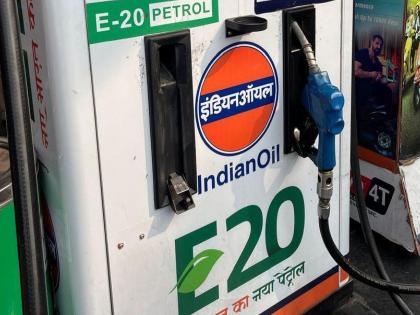Ethanol-Blended Petrol Cuts Mileage in Older Vehicles: Government
By Lokmat Times Desk | Updated: August 7, 2025 10:50 IST2025-08-07T10:49:36+5:302025-08-07T10:50:50+5:30
The central government has admitted that ethanol-blended petrol, particularly E20, reduces the mileage of older vehicles by around 6%. ...

Ethanol-Blended Petrol Cuts Mileage in Older Vehicles: Government
The central government has admitted that ethanol-blended petrol, particularly E20, reduces the mileage of older vehicles by around 6%. It has also acknowledged that maintenance costs tend to rise due to the fuel's composition. This official confirmation lends weight to vehicle owners’ growing concerns. Despite these admissions, the government has attempted to downplay the impact, stating the drop in mileage is minimal when compared to the broader environmental and economic benefits of ethanol blending. However, this explanation has failed to satisfy many users who have reported noticeable drops in fuel efficiency and increased expenses.
E20 fuel is now available at petrol pumps across the country, and several automobile companies are producing new vehicles compatible with this blend. However, owners of older vehicles are feeling the pressure, as most of India’s vehicle fleet still runs on engines not designed for high ethanol blends. As a result, these owners are seeing their running costs go up and performance go down. Vehicles manufactured before April 2023 appear to be the most affected. Surveys have revealed that two out of every three car owners have reported a decline in mileage after switching to E20 fuel.
Also Read: KIIT Powers India's Best-Ever Show at World University Games with Historic Medal Haul
The LocalCircles survey highlighted that the problem is widespread. It showed that older vehicles—especially those manufactured in 2022 or earlier—are now delivering significantly lower mileage than before. A total of 14,127 vehicle owners participated in the survey. Of these, only 12% supported the use of E20 fuel. On the other hand, 44% of respondents were against it. Interestingly, 22% said they would be willing to accept ethanol-blended fuel if given the option to choose between E5, E10, or E20—though such flexibility seems unlikely. Another 22% admitted they had no clear understanding of the fuel impact.
Another survey involving 22,282 vehicle owners painted an even clearer picture of how fuel efficiency is being affected. Around 11% of respondents said their vehicle mileage had dropped by as much as 20%. Another 22% reported a reduction in the 15–20% range, while 11% experienced a 10–15% drop. Furthermore, 14% claimed that their mileage had decreased by 5–10%. Only 11% said they noticed no difference in performance with E20 fuel. These findings indicate that while E20 may be a step toward greener fuel options, the transition is proving costly and inconvenient for a large section of vehicle owners across India.
Open in app